|
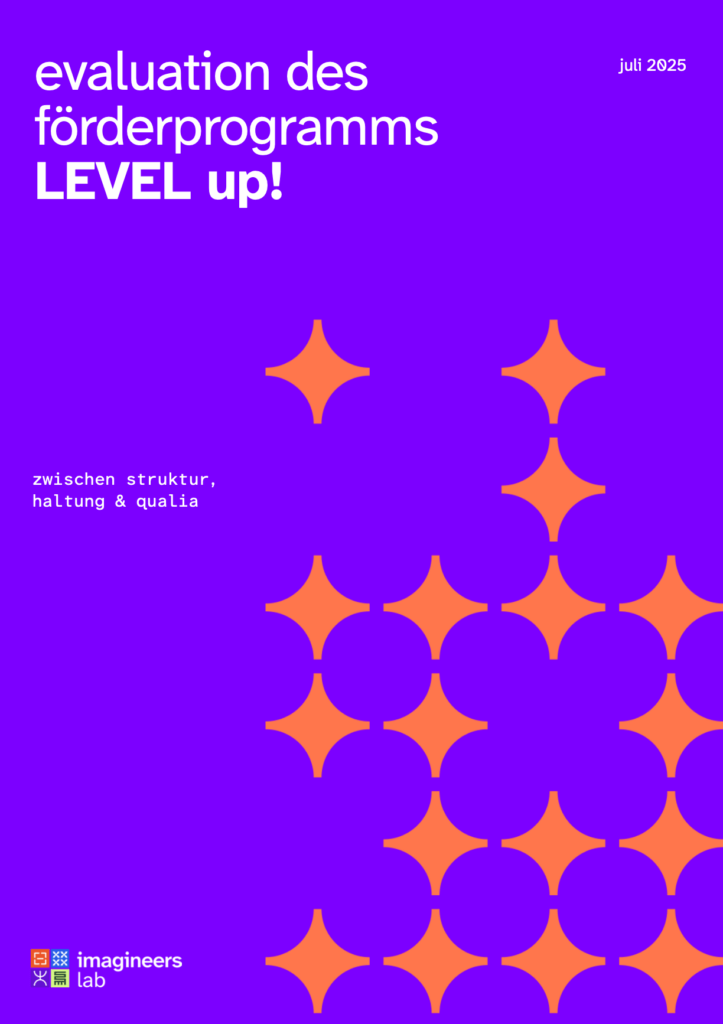
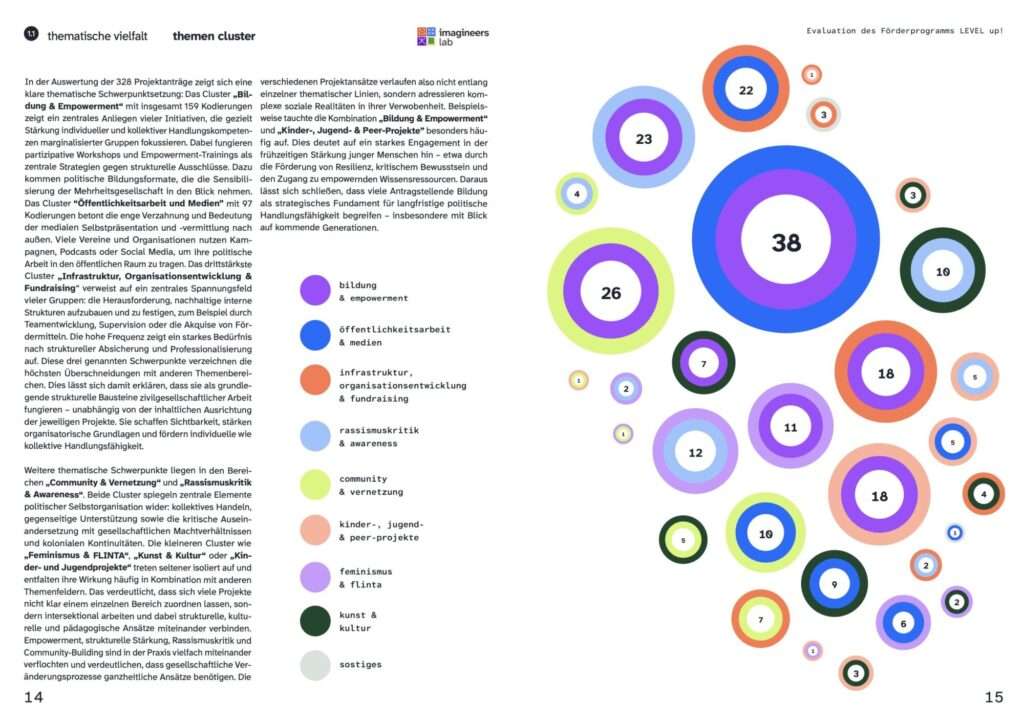
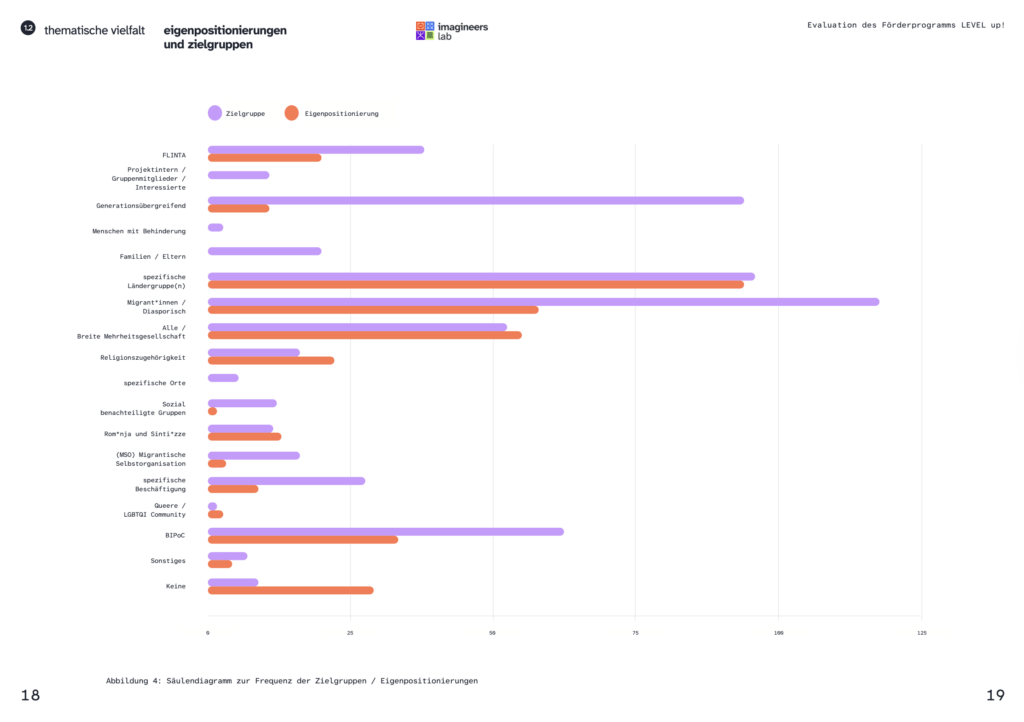
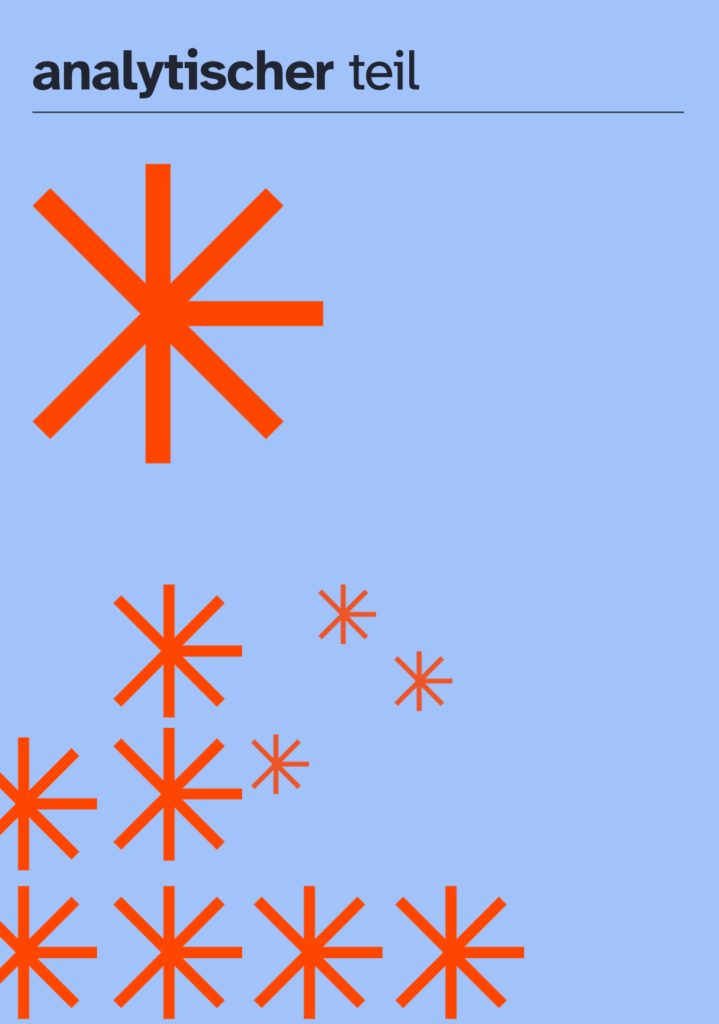
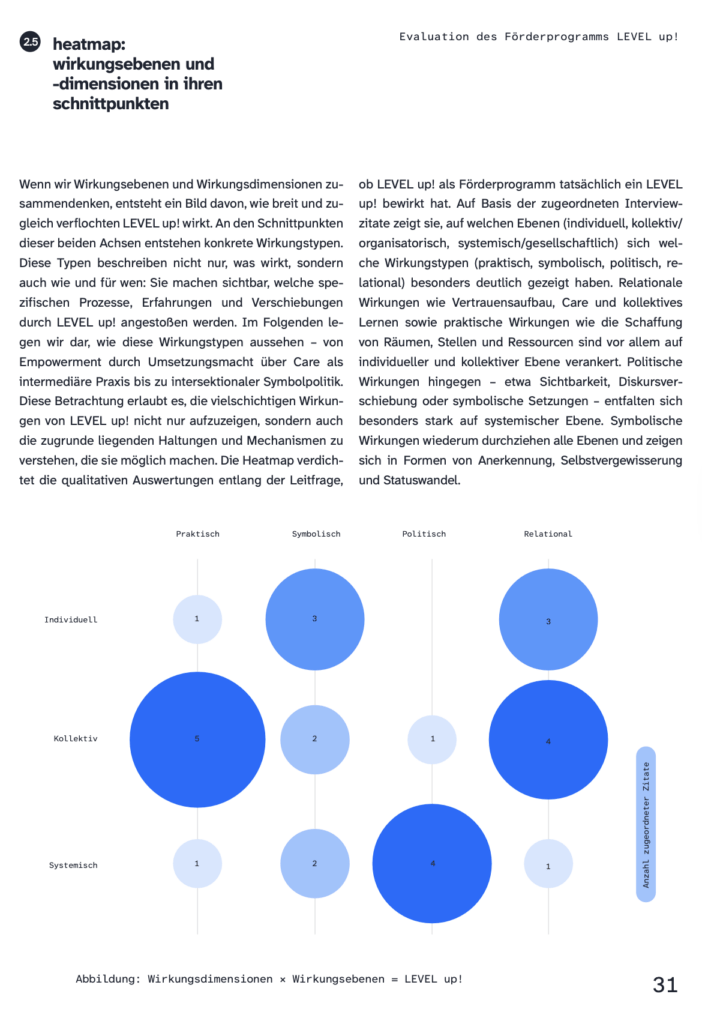
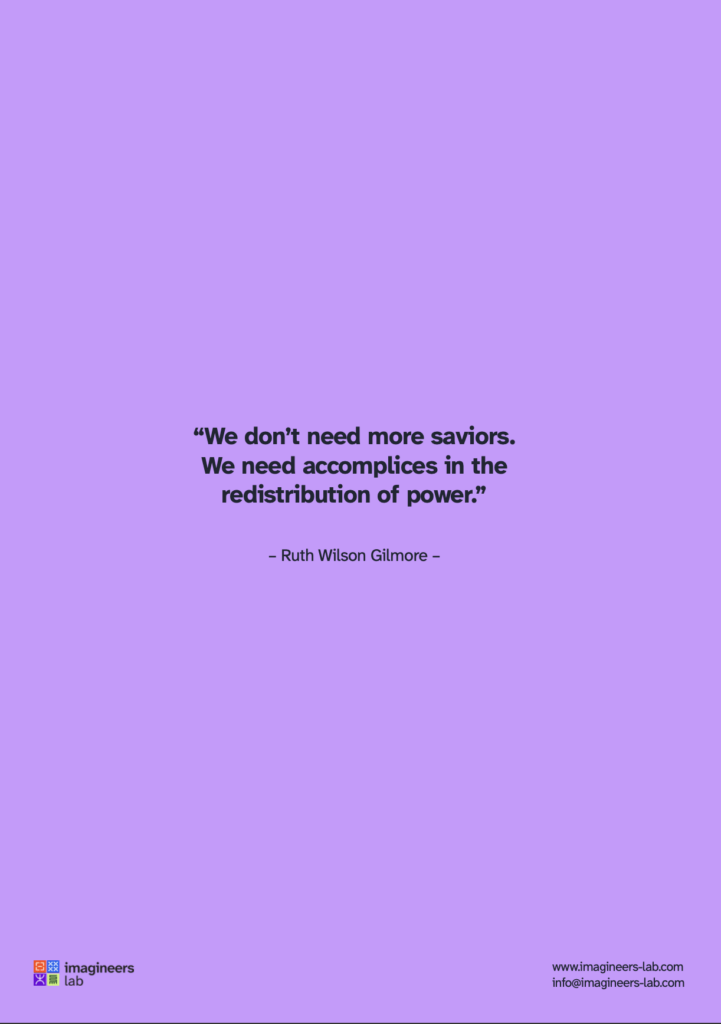
In Germany, migrant self-organizations have been making important contributions to social participation, political involvement, and empowerment for decades. At the same time, their funding from foundations and other sources is often sporadic, short-term, and characterized by a deficit logic. Against this backdrop, LEVEL up! was created – as a co-creation of the Robert Bosch Stiftung (RBS), the neue deutsche organisationen (ndo), and the Turkish Community in Germany (TGD) – to specifically promote the capacities, professionalism, and reach of migrant/BPoC organizations that are already established or just starting up.
The LEVEL up! program was developed jointly by the Robert Bosch Foundation, the new German organizations, and the Turkish community in Germany. For the evaluation, we worked closely with these partners and the funded migrant initiatives.
Our evaluation focused on the first and second funding rounds of LEVEL up!. The aim was not only to measure impacts, but also to highlight experiences, consider structural issues, and provide recommendations for the further development of the program:
➔ How does LEVEL up! work at the individual, organizational, and systemic levels?
➔ What conditions strengthen or limit its impact?
➔ What can be learned from LEVEL up! for a possible third funding round and for funding practice in general?
We have chosen an anti-racist, power-sensitive, and community-centered approach that understands evaluation itself as part of civil society practice. Under the title “Between Structure, Attitude, and Qualia,” we have developed a model that captures both organizational development (e.g., professionalization, networking, resource building) and subjective experiences (e.g., resonance, recognition, empowerment).
Our approach:
➔ 13 qualitative interviews with grantees, partners, and the foundation.
➔ Participation and observation at network meetings, including discussions with workshop leaders.
➔ Analysis of 328 project submissions, coded into nine thematic clusters (e.g., education & empowerment, community & networking, criticism of racism & awareness).
➔ Feedback workshops to reflect on interim results together and shape the evaluation as a learning process.
This enabled us to visualize how structure, attitude, and qualia interact and shape the overall picture of LEVEL up!
The evaluation showed that LEVEL up! embodies a new culture of support:
➔ Evaluation report – The report summarizes the effects, challenges, and recommendations. *Link to the report*
➔ Structures & Qualia – In addition to organizational development, many initiatives experienced a strengthening of intangible dimensions: resonance, recognition, self-confidence.
➔ Importance of attitude – Funding has a different effect when it is understood as a partnership. Where co-creation, dialogue, and trust were practiced, spaces for self-empowerment and collective learning emerged.
➔ Spaces of possibility – LEVEL up! shows that impact is not created linearly through scaling or output, but through the interplay of structures, attitudes, and experiences. The program thus counterbalances paternalistic funding logic and offers a blueprint for future programs.
The evaluation of LEVEL up! has yielded several key insights:
➔ Attitude is key – Impact is not only created by resources, but also by the attitude of those providing support. Organizations develop new strengths where trust, dialogue, and partnership are practiced.
➔ Impact is multifaceted – traditional metrics fall short. What is crucial are the connections between structures, attitudes, and subjective experiences that enable impact at the individual, organizational, and systemic levels.
➔ Co-creation works – LEVEL up! shows that support programs themselves can act as spaces of opportunity when they are not controlled from above but are designed collaboratively.
➔ Making boundaries visible – In addition to successes, structural hurdles and ambivalences also became apparent (e.g., precariousness, inequality of resources). This openness is important in order to initiate realistic further developments.
The model we have developed makes impact tangible by combining structures, quantitative data, and the subjective perceptions of those involved – their qualia. This reveals that impact is not only measured in numbers, but also in experiences and attitudes.
We hope that this approach will be taken up in a further round of funding from LEVEL up! – and at the same time provide impetus in the foundation and funding landscape to make funding logic more sustainable, fairer, and more effective.